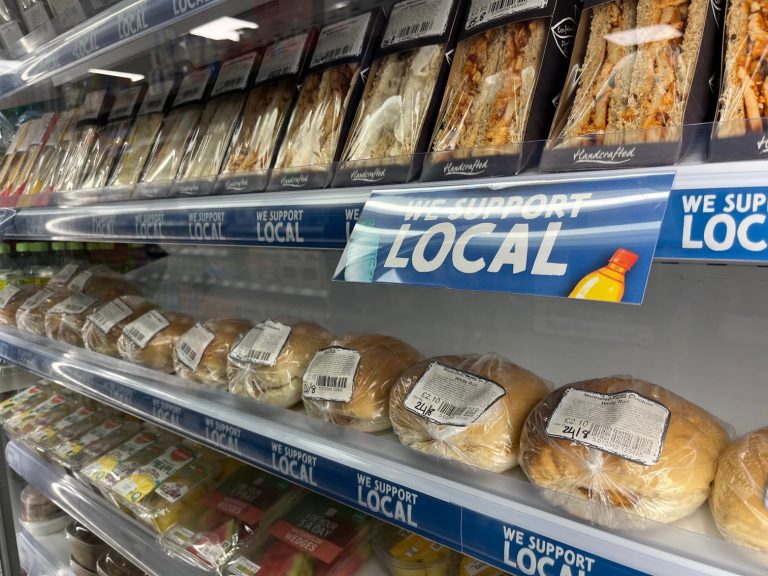The Scottish Government launched its public consultation on ‘Reducing Health Harms of Foods High in Fat, Sugar or Salt’ last month and the SGF Healthy Living Programme is urging retailers to make sure their voices are heard.
by Antony Begley
In addition, the consultation is seeking views on whether ice-cream and dairy desserts should also be categorised as discretionary foods.
It is the Scottish Government’s opinion that “too many of us in Scotland have a poor diet and an unhealthy weight, which can have a negative impact on our health and wellbeing, in part because we generally consume too many calories and too much fat, sugar and salt”. Whether you agree with this or not, the Government plans to introduce new legislation to tackle the issue.
As part of its plan to improve our nation’s health by improving our diet and weight, the Scottish Government has launched a public consultation on ‘Reducing Health Harms of Foods High in Fat, Sugar or Salt’ which will run until January 9, 2019. While the 48-page consultation document is wide-ranging and covers a lot of health and diet issues, many of the topics under discussion could potentially have very significant consequences for Scotland’s local retailing community.
The consultation document specifically lists product categories that “are typically high in fat, sugar or salt, and yet provide little or no nutritional benefit necessary for a healthy diet”. These foods are considered optional and are therefore referred to as ‘discretionary foods’.
The Scottish Government is actively considering targeting the following discretionary categories:
- Confectionery
- Sweet biscuits
- Crisps
- Savoury snacks
- Cakes
- Pastries
- Puddings
- Soft drinks with added sugar
SGF Healthy Living Programme (HLP) Director Kathryn Neil is strongly urging retailers to make sure their voices are heard by contributing to the consultation. She says: “I have no way of knowing what that consultation will lead to, obviously, but the outcome of this consultation is likely to be some form of restriction on selling confectionery at the tillpoint as well as restrictions on how these types of products can be promoted.
“The fact that these issues have already been made public in the ‘Scotland’s Diet & Healthy Weight Delivery Plan’ document that was published in July suggests that we can expect developments in this area.”
The Delivery Plan Neil refers to is the ‘A Healthier Future: Scotland’s Diet & Healthy Weight Delivery Plan’ unveiled by Joe Fitzpatrick MSP, Minister for Public Health, Sport and Wellbeing. It was this plan that led to and informed the public consultation. In his introduction to the consultation Fitzpatrick makes it crystal clear what his aims are: “We have one of the poorest public health records in Europe. Tackling Scotland’s serious diet and weight problem requires actions on a number of fronts. Poor diet and overweight or obesity cause public health harm. So, it is clear we must take decisive action.”
Fitzpatrick specifically refers to a requirement to “restrict[ing] the promotion and marketing of some of the foods we need to eat less” and it is this issue that is likely to have the biggest impact on Scotland’s local retailing sector. “Promotion and marketing works,” he comments. “That is why so much effort is expended on them. By restricting, at the point of purchase, the promotion and marketing of foods that have next to no beneficial nutritional value, it is reasonable to expect less of these foods will be purchased, improving, over time, our diet-related health.”
The key areas under consideration within the consultation which could affect local retail include:
- Price promotions
- Multibuys
- Temporary price promotions and mutlipacks or not under consideration
- Other forms of promotion & marketing
- Placement at checkouts, end-of-aisle, front of store, island/bin displays, etc
- Promotion of value (e.g. promotion of price, size or volume)
- Shelf-edge displays and signage
- In-store advertising
- Upselling
- Coupons (physical or electronic)
- Purchase rewards (e.g. Toys, vouchers, loyalty card points, reduced price for another product, competition entry)
- Free samples
- Branded chillers and floor display units
- Selling or leasing display spaces for foods subject to the restrictions
- Promotional or marketing material provided by manufacturers and distributors
HLP’s Neil fully expects the consultation to lead to major new restrictions that will affect all local retailers across Scotland, but urges them to embrace these developments positively and start making plans for the continuing evolution of the retail environment. She says: “Firstly, it’s extremely important that retailers participate in the consultation. If they want to have their voices heard, they have to engage with the consultation.
“Secondly, when the consultation is complete and the new restrictions are put into place, whatever they may look like, I would encourage retailers to be as positive as they can about working within the new regulations and playing their part in offering helping improve the health and wellbeing of their customers. It’s entirely understandable that retailers will find these changes difficult, but I would ask them to approach these challenges positively. When the consultation is concluded we will have a much clearer picture of how the future lies and the role that the Programme will have in helping retailers move forward and embrace the changes positively.”







